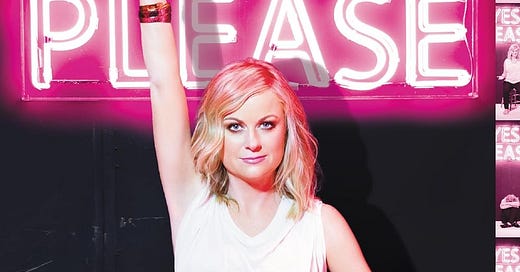This book came out a decade ago. I picked it up partly because I’ve been diving into “yes, and…” mindsets, partly because I really liked her MasterClass, and mostly because my friend Keith Elison (a connoisseur of comedian memoirs) told me it was one of his favorites. The problem with checking out comedian autobiographies is it unleashes a deluge of recommendations on Goodreads and Audible for similar books from people I’m not a fan of. As much as I loved the books by Poehler, Steve Martin, and Martin Short, I’ve got to let the algorithm know I’m not interested in books by Amy Schumer, Sarah Silverman, Drew Barrymore, or Rob Lowe. (Kenan Thompson? Maybe.)
Most books like this offer insights to the scrappy and lucky ways the authors got their start. I like learning about the ways talent is attracted talent before anyone becomes famous. Poehler and Tina Fey toured with The Second City long before they were on SNL, and they both joined when people like Steve Carrell, Stephen Colbert, and Amy Sedaris were on the main stage. Amy Poehler’s first Chicago apartment was previously Chris Farley’s. And a young Seth Meyers pops up at a couple of her performances before either of them knew who the other was. These little vortexes of talent feel like a comedians’ version of Paris in the 1920’s.
But there are two things about Yes Please that make it different than other comic memoirs. First, Poehler is very improv centric. Improv is different than stand-up or sketches, and I think it has more to teach non-comedians than most other forms of comedy. I’ve deliberately used principles in improv presenting to clients, teaching classes, and even in casual relationships. So, to hear things like “yes, and…” and “never abandon a cast member” reiterated and have their importance explained is a good thing.
Second, Poehler tells a couple stories that are more poignant than funny. The most troubling one is when she inadvertently, unknowingly made fun of a girl with cerebral palsy during an SNL sketch (the girl was probably watching the show), and then being called out for it by Oscar-winner Chris Cooper and his wife. Poehler didn’t handle it well, and her initial decisions are mildly gut-wrenching. It’s a mini treatise on guilt, shame, and attempted redemption. It’s got a happy ending, but not an easy one. And it made me like her even more.



